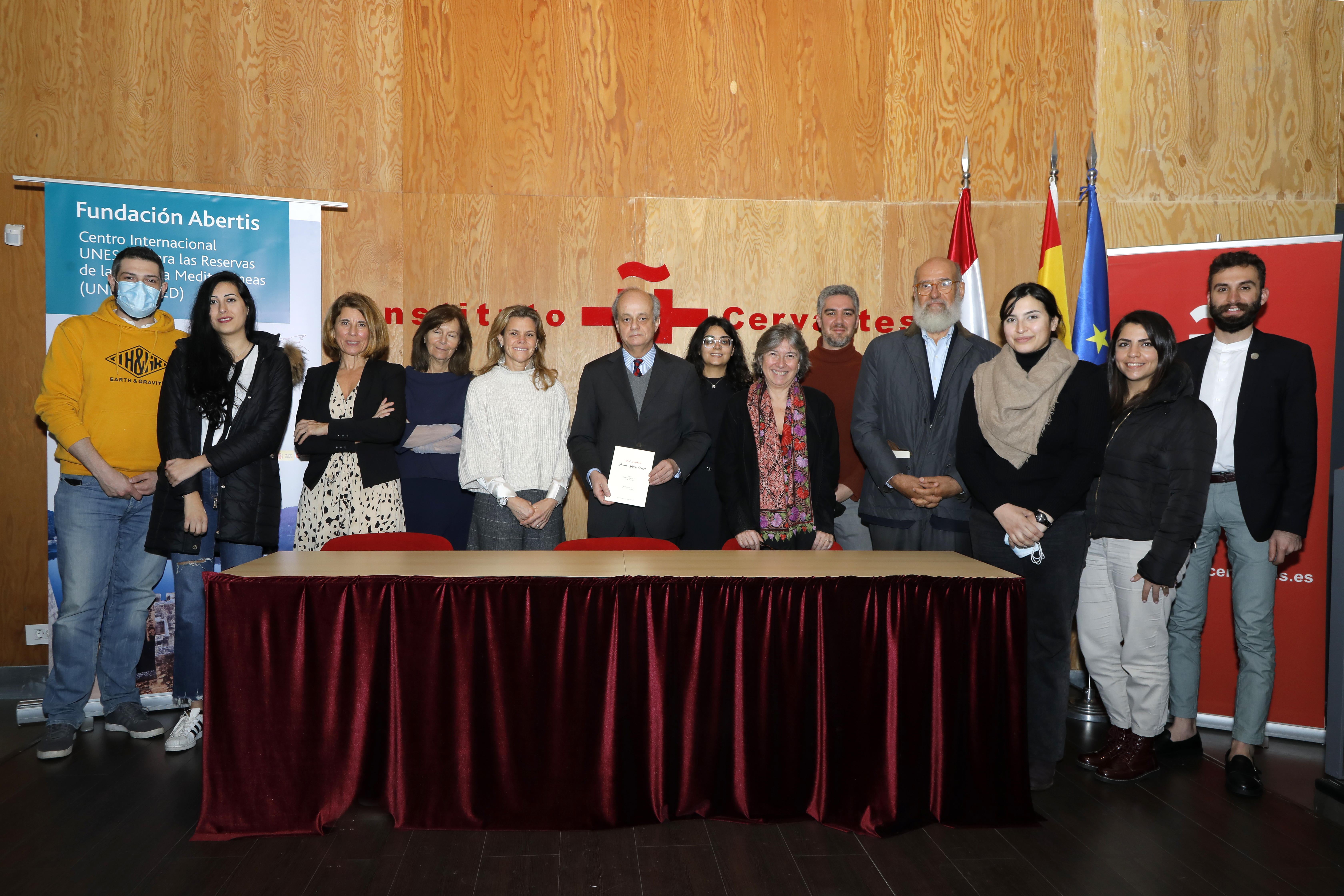- The project comes to an end after 40 months of intense work with the involvement of more than 150 people, including professionals and university students from five Mediterranean countries.
- The promoters of Erasmus+ EduBioMed celebrate having managed to strengthen relations between Lebanese and Moroccan universities and reserves.
- This initiative financed the tools supply and development for applied research in socio-environmental studies.
- José Emilio Pacheco in Arabic. The Mexican author featured in the 5th edition of the program POCENAR (Cervantes Poets in Arabic).
Barcelona, 25 February 2022- Four years ago, the European Commission awarded the Erasmus+ project to the Autonomous University of Barcelona (UAB) and the UNESCO International Center for the Mediterranean Biosphere Reserves (UNESCOMED), headquarters of the Abertis Foundation. This project is an initiative whose main objective is the strengthening and the improvement of academic activity between countries of the Mediterranean basin (Spain, France and Italy) and Moroccan and Lebanese institutions, in the context of Mediterranean Biosphere Reserves. Now this project is coming to an end after 40 months of intense work and the involvement of more than 150 people, including professionals and university students from five Mediterranean countries.
The presentation of Erasmus+ EduBioMed project was held on February 25 at the headquarters of the Cervantes Institute in Beirut, in the presence of its director, Yolanda Soler Onís, and the director of the Abertis Foundation, Georgina Flamme, who presented the strategic lines of the Foundation. Also, the activities carried out through the UNESCO International Center for Mediterranean Biosphere Reserves (UNESCOMED) have been presented, as well as the main conclusions of the Erasmus+ EduBioMed project in a round table with the participation of representatives of the two main Lebanese universities collaborating with the project. The event was closed by the Spanish ambassador in Lebanon, José Mª Ferré de la Peña.
The Erasmus+ EduBioMed project has focused on strengthening applied research and education in Mediterranean Biosphere Reserves, as well as strengthening relations between Lebanese and Moroccan universities and reserves. Thanks to this project, the tools supply and development for applied research in socio-environmental studies has also been financed.
It is noteworthy to mention, among other activities and results, the conduct of surveys in Lebanese and Moroccan universities on the concept of Biosphere Reserves, the workshops with local communities in order to align university activity with the needs of the territories and the review of public policy recommendations for the integration of MAB directives in Lebanon and Morocco.
In the other hand, the production of a work agenda on Mediterranean Reserves has been promoted and the production of computer tools for collaborative research on Mediterranean Biosphere Reserves has been reinforced. Also, the project included the encouragement of more than 25 education and research projects in Lebanese and Moroccan Biosphere Reserves, as well as the mobility of more than 60 university students in the Erasmus+ project and editing a publication on Mediterranean Biosphere Reserves.
Along the same lines, the project promoted online courses on this subject, the preparation of a position paper on the production of recommendations on university curricular development in Mediterranean Biosphere Reserves, and of computer platforms for citizen collaborative science, as well as the purchase of equipment for field work, among other activities and initiatives.
Cervantes Poets in Arabic (POCENAR): presentation of “En Resumidas Cuentas” of José Emilio Pacheco
February 26 at 6:00 p.m., the edition by the Abertis Foundation and the Cervantes Institute of Beirut of José Emilio Pacheco’s “En Resumidas Cuentas” is presented at the Baakline National Library. It is a bilingual Spanish/Arabic poetry anthology, translated by Ali Abdel Latif, Hiba El Hassanieh and Asmaa Gamal Abdel Nasser as part of the Cervantes Poets in Arabic training, translation and editing program (POCENAR). Lebanese Noura El Sayed Rodríguez (program director), Antoine Abrass and Mexican researcher Álvaro Ruiz Rodilla have participated as teachers in the workshops organized in collaboration with the Hotel Mir Amin Palace. The purpose of the program is to disseminate the work of the poets who have been awarded the Cervantes Prize and to introduce the work of young translators in the Arab world. The Abertis Foundation has collaborated with POCENAR since its first edition, held in Marrakech in 2016, through the UNESCO International Center for Mediterranean Biosphere Reserves.
About the Mediterranean Biosphere Reserves Network
The more than 70 territories forming the Mediterranean Biosphere Reserves Network (RRBMed) include a set of diverse and representative sites that house an exceptional heritage related to biodiversity, landscapes and cultural expressions. The quality of these environmental and cultural resources places the Mediterranean Biosphere Reserves as distinguished places for the promotion of sustainable tourism in all its forms, in the unique environment of two coasts united by their culture and nature.
Castellet Castle, headquarters of the Abertis Foundation, was declared in 2013 UNESCO International Center for Mediterranean Biosphere Reserves. This is the first experience of public-private collaboration in the field of Category 2 centers of the Biosphere Reserves Network, recognized by the organization belonging to the United Nations.

